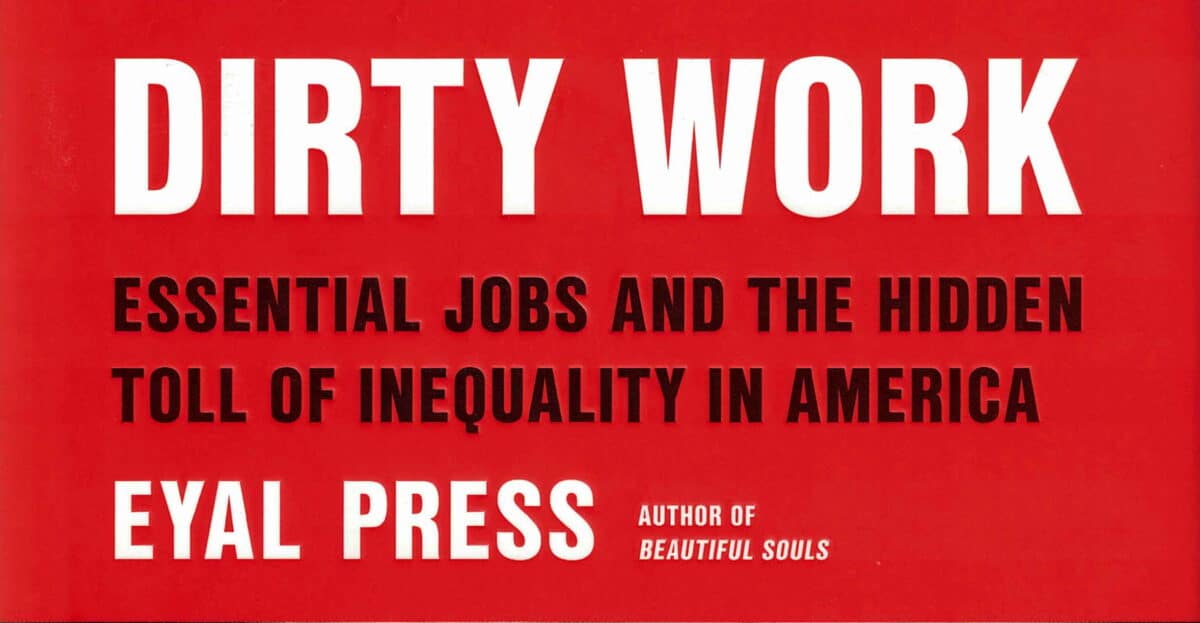Eyal Press recently published “Dirty Work: Essential Jobs and the Hidden Toll of Inequality in America.” One of Press’s contentions is that coronavirus has brought the invisible workers who do our dirty jobs into view. These are now considered “essential workers” but are still subjected to the inequality and poor working conditions that rendered them invisible to the rest of society, to those who benefit from the services and products of the invisible dirty workers.
Although this blog’s theme is occupational health and safety (OHS), Press’ description of “dirty work” is an important perspective on work generally:
“The familiar, colloquial meaning of “dirty work” is a thankless or unpleasant task. In this book, the term refers to something different and more specific.
pages 11-12, reformatted to emphasis the definition elements
First, it is work that causes substantial harm either to other people or to nonhuman animals and the environment, often through the infliction of violence.
Second, it entails doing something that “good people” – the respectable members of society – see as dirty and morally compromised.
Third, it is work that is injurious to the people who do it, leading them either to feel devalued and stigmatized by others or to feel that they have betrayed their own core values and beliefs.
Last and most important, it is contingent on a tacit mandate from the “good people,” who see this work as a necessary part of the social order but don’t explicitly assent to it and can, if need be, disavow responsibility for it. For this to be possible, the work must be delegated to other people, which is why the mandate rests on an understanding that someone else will handle the day-to-day drudgery.”

